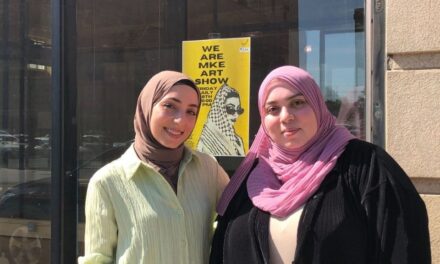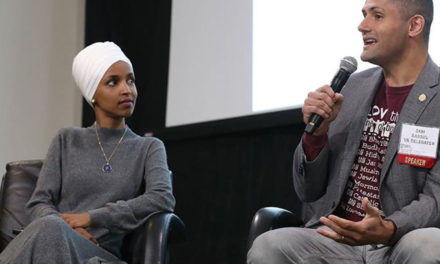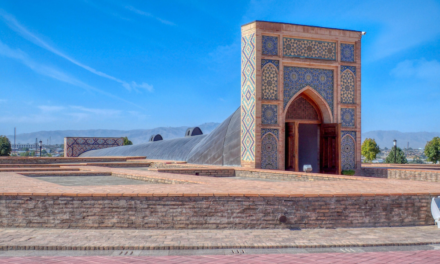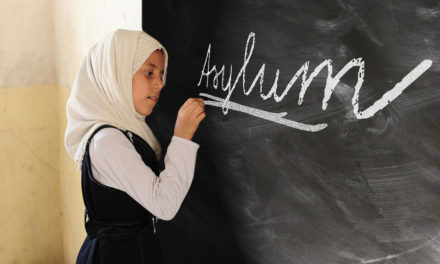Nusaiba Mizan for Green Bay Press-Gazette
Ramadan, a holy month in Islam, typically elevates Islam’s emphasis on community.
The month, devoted to self-restraint, worshiping Allah, and fasting from dawn until dusk, began Thursday evening amidst a coronavirus pandemic that is changing the community aspect of observing Ramadan.
Normally, family and friends would break their fasts with each other at sunset or eat before dawn every day. People would pray together in the mosque, and community service and events would usually happen together in person, as well.
Fasting “changes you mentally and physically,” said Mamadou Coulibaly, president of Neenah-based Fox Valley Islamic Society. “You can do it. It’s amazing. There’s the spirit of Ramadan in coming together, breaking the fast together. It’s also very joyful. The time to break fast is very joyful. And, believe it or not, in Ramadan I often get more things accomplished than I would normally, work-wise. I’m more productive.”
This year with mosques closed and no gatherings, it’ll be different. Despite the change, Ramadan is always seen in the Muslim community as a blessing. This Ramadan still brings opportunities to worship Allah and do charity for the community.
Coulibaly said that Islam and Ramadan are built on patience, such as the patience to continue with fasting throughout the day. Self-isolation during Ramadan this year brings another dimension to patience.
Imam Sheikh Hassan of the Green Bay mosque, which served 180 people last Ramadan, said even if this year is different, Muslims can worship anywhere. Imams are putting sermons online, so there are opportunities to learn and connect there.
“The coming together, the gathering, is not there,” Hassan said. “But the ibadah (acts of worship) is there. Some things are there: Reading the Quran is there, listening to lectures online is there.”
Alicia Razvi, a Stevens Point mother and farmer, has been sharing her family’s Ramadan experiences on social media for years. Normally, with few Muslims in Stevens Point, her family shares iftars–the meal to break fasts–within the Razvi household.
“Our iftars are always quiet affairs. We do not head to the (mosque) very often, so this year will feel very similar to our past Ramadans,” Razvi said via email.
Green Bay nursing student Maryama Habane said in an email she plans to keep in touch with friends and family virtually.
“One way I will stay connected with people is through social media and FaceTiming with my friends and family,” Habane said. “Although we cannot physically be together, we can still share how to make our favorite Ramadan dishes and just talk about anything.”
Green Bay couple Osayd Assad and Tasneem Amro see Ramadan as a positive opportunity to self-reflect, one that can be enhanced by self-isolation during the coronavirus pandemic. They most look forward to spending time in reflection and with their family.
“You have more time to kind of think of what you’re doing and how you’re spending your time and day, now that you’re at home and there are no more outside distractions,” Amro said.
In past Ramadans there have been lots of opportunities to join together with the community. This Ramadan will just bring a different opportunity, Assad said.
“When Ramadan starts, our lives don’t stop. So you still have your job, you still have everything still going on in your life —school, things like that,” Assad said. “But this year is different because most people aren’t working anymore or are working from home, so there’s a lot more family time and a lot more time to bond with the family than any other year.”
Akhtar Sultan, vice president of the Fox Valley Islamic Society, also looks most forward to family bonding this Ramadan. Sultan sometimes leads prayers and also serves in an administrative role at the mosque alongside Coulibaly. This includes organizing events within the Muslim community as well as interfaith events.
“Even though we will miss the larger community interaction during Ramadan, the family bonding will be strengthened during this Ramadan,” Sultan said.
While Muslims cannot gather for charity or service this month, there are other ways to serve needs in the community while respecting the state’s stay-at-home rules and social distancing guidelines. There are opportunities to donate online to charities or to the mosque for when operations begin again. There are also actions that respect social distancing guidelines, like dropping off food for a neighbor who needs it, Coulibaly said.
“This is an opportunity for all of us,” Sultan said. “So with some of the free time that is available to us, we can increase our charities, we can increase our feeding of the poor inside the United States, as well as outside. We can help sick people with our expertise in the medical-related areas.”
Coulibaly noted that essential workers are still going out to work at great risk. Remembering those who are fasting while still going to work puts stay-at-home fasting into perspective.
“People inshAllah (God willing) will do their best, and what counts in Islam is the intention,” Coulibaly said. “We intend to do things that are good. The intention is something you can be rewarded for, so we do what we can.”














